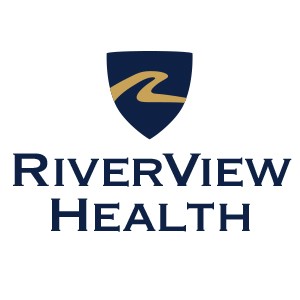Did you know the U.S. Preventative Services Task Force changed its colorectal (colon and rectum) cancer screening recommendations in 2021? It is now recommended that adults at average risk of getting colorectal cancer begin screening at 45 instead of the previously recommended age of 50.
At RiverView Health, general surgeons Dr. Brett Vibeto and Dr. Huy Nguyen and gastroenterologist Dr. David Gutman offer colonoscopy and other screenings to find precancerous polyps — abnormal growths — that can be removed before they turn into cancer. Screening also helps find colorectal cancer at an early stage, when treatment works best. Colorectal cancer screening saves lives.
Colorectal cancer is the second leading cause of cancer deaths among men and women in the United States, according to the Centers for Disease Control and Prevention (CDC). In 2018, in the United States, 141,074 new cases of colon and rectum cancer were reported, and 52,163 people died of this cancer. Statistics show that if everyone 45 and older were screened regularly, as many as half of the deaths from colorectal cancer could be avoided.
The risk of getting colorectal cancer increases with age as polyps become more common. Other factors that increase your risk include having a diet that is low in fiber and high in fat and having a sedentary lifestyle. Men and women are equally affected by colorectal cancer.
Your primary care provider may advise you to be screened earlier if you have a family history of colorectal cancer or polyps or have a personal history of inflammatory bowel diseases, such as ulcerative colitis or Crohn’s Disease. Several inherited disorders greatly increase your risk of colorectal cancer.
Symptom-Free? Screen Anyway
Just because you do not have any symptoms, it does not mean you are in the clear for colorectal cancer. Precancerous polyps and colorectal cancer do not always cause symptoms, especially initially. You could have polyps or cancer and not know it. That is why having a screening test is so important.
Some symptoms that may indicate colorectal cancer include:
- Rectal bleeding
- Blood in or on the stool (bowel movement)
- Stomach pain, aches, or cramps that do not go away
- Losing weight and you don’t know why
- Constant fatigue
- Change in bowel movements
- Discomfort in or the urge to move your bowels when there is no need
If you have any of these symptoms, the only way to know what is causing them is to see your provider.
Healthy Living goes a Long Way
While there is no way to eliminate the risk of developing colorectal cancer entirely, there is evidence that you can reduce your chance of getting it by doing the following:
- Have a diet that is rich in fiber; eat plenty of whole grains, fruits, and vegetables
- Eat cabbage, broccoli, cauliflower, and Brussels sprouts often
- Avoid foods that are high in fat, particularly saturated fat
- Eat foods that are high in calcium
- Exercise regularly
If you are 45 or older, talk to your primary care provider about screenings available at RiverView Health, or call 281.9595 for more information.




